When the Power Grid Fails: Things You Will Need
Have you ever thought about the possibility of what will happen when the power grid fails? What will you do without electricity to keep your food cold or to cook your meals? What would you do without electricity to see what you were doing in a dark home? Below, we’ll talk about the power grid, what it will look like if it fails, and the things you will need to survive! What You Can Do When the Power is Out
What is the Power Grid?
The power grid provides electricity to your home and everyone else’s homes and businesses. You have seen the tall towers strung with wires that stretch across every kook and cranny of our states, especially along major highways. But did you know those are power transmission lines, and you are looking at a part of the power grid?
How Does it Work?
The power grid starts where electricity is made. It is typically generated at power plants and distributed at central power stations. The plants generally run on fossil fuels like coal or natural gas or from hydroelectric plants that use water to generate electricity. However, more options to gather electricity are now available, such as rooftop solar panels, wind farms, and other environmentally friendly sources.
Regardless of how electricity is made, it must be transmitted and distributed to you and me. Our power grid is made up of a network of transmission and distribution facilities. Electricity is transmitted at a very high voltage over the power lines that run throughout our country.
When electricity runs through the power lines, it reaches neighborhoods, where transformers convert the high voltage to a lower voltage for distribution to homes and businesses.
We are drawing on the electrical grid infrastructure as you and I use electricity for lights, computers, appliances, heating, and cooling. The hundreds of organizations or companies that help distribute the power are called a utilitity company, unless you live in a community that has its own municipal power.
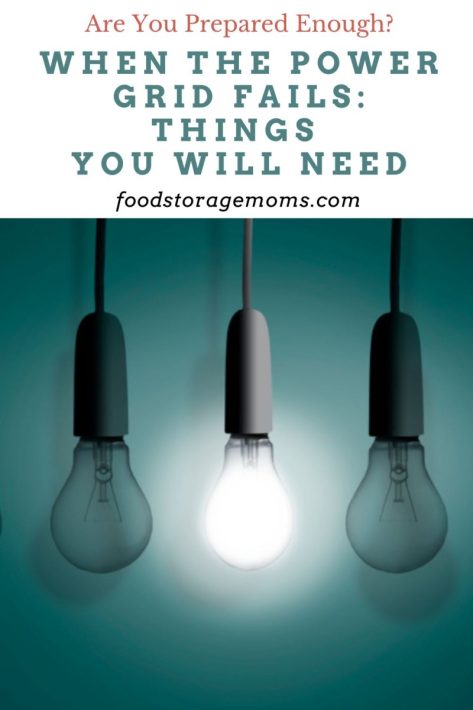
When the Power Grid Fails
We have all experienced short instances of no power. Maybe you forgot to pay an electric bill, a storm comes through and knocks the power out, or someone crashes their car into a transformer pole. However, most of us don’t know what it’s like to be without power for weeks, months, or even years. Well, unless you are a part of the Amish community.
We have THREE POWER GRIDs in the U.S. right now: the East Coast, the West Coast, and Texas. These grids sell power to US states, cities, and communities. I quote: The U.S. grid is divided into three major regions. I quote: U.S. Grid Regions.
“The Texas Interconnected System.
The Eastern Interconnection operates in states east of the Rocky Mountains.
The Western Interconnection covers the Pacific Ocean and the Rocky Mountain states.”
Most of us haven’t seen what could happen if our entire power grid fails. So, here are just a few of the things we’ll experience if this happens:
You Won’t Be Able to Charge Your Phone or Use Other Electronic Devices
Let’s hope you don’t have an emergency because you won’t likely be able to use your phone. If you have an old-fashioned phone that you plug into the wall, if the grid goes down your phone won’t work since the switching stations rely on power. This is where solar comes into play if the grid is only partially down. Ensure you have a solar unit to charge your phone; get one. Here is one that I highly recommend: Goal Zero Charger
The challenge is, if the grid is truly down, cell towers won’t function since they rely on electric power. Your home will stay dark and we’ll have a full blackout. You may be able to get enough power from a backup generator to run some lights and appliances, but this backup power will only work until you run out of fuel for the generator.
Lack of Refrigeration Will Cause Food Shortages
When we think of power outages, we think about the food in our own home spoiling. But, what happens when our local grocery stores can no longer keep their food refrigerated either? Many businesses have backup generators for short power outages, but if the grid fails, there will be food shortages since stores can only run those generators for a few hours.
It Will Be Hard to Pay for Things
Not only will grocery stores be without power, but they won’t be able to take those plastic cards. Scanners will not work! ATMs will not work! Even the check scanners will not work! The only hope you will have is that you stored some cash.
Please note, I did talk to four different grocery stores in Southern Utah about five years ago and this is what I learned. A few stores have a generator or two that will keep the cold foods cold for a limited time. Three of the stores said they would have to lock the doors just as banks do when there is a power outage for safety reasons.
One store mentioned they have generators stored throughout the state that could be brought down here to keep the store going if the highways are open. This same store said they could process payments from up to 4,000 customers using debit or credit cards. They will risk not knowing if the customers have money in said accounts just to serve their valued clients.
Traffic will Be Messed Up
The traffic lights run on electricity which means your traffic lights won’t work. This may be ok in small towns, but in larger communities with lots of traffic, this could mean traffic gridlock and possible accidents. Additionally, communications for emergency personnel will be compromised. They are then forced to use battery-operated radios instead of electrically powered ones.
Gas Stations Can’t Pump Gas
Your car won’t last long without gas. And, with no power, gas stations will not be able to pump the gas they have into your vehicle. Please keep your gas tank at least 3/4 full. You don’t want to be that person in line to fill your gas tank with 200+ other families waiting to get gas.
Water Treatment Plants and Sewer Lines Need Electricity
Did you know that water treatment plants need power to pump and process the water? Not only do they need electricity to move water, but they don’t have any backup systems if the power grid goes out. Therefore, we will have a hard time finding a quality water supply. Equipment failures at the water distribution sights mean you’ll need to have your own stored water for hydration, cooking, personal hygiene, and limited laundry chores.
Your family preparedness should include portable showers and possible makeshift toilets. I called our city a few years back about the sewer lines and they mentioned if you are at the top of the sewer lines you may be okay because sewage naturally goes downhill, with a little help. When the power goes out and your city or county doesn’t have a generator or backup plan, you need to be ready for a sewage backup since they won’t have a way to pump the lines.
In case you missed these posts, Emergency Toilet and Emergency Washing Machines. I have since purchased this Lavario Emergency Washing Machine (currently back-ordered).
Nuclear Power Plants Could Explode
As of this writing, we have 104 nuclear power plants in the United States. These plants use electricity to keep cool. Cooling the plant is extremely important. Spent rods must be kept cool and contained as overheating can cause explosions and fires. If the core overheats, we could see a nuclear meltdown. Additionally, if the containment structure of the plant is damaged, radiation will leak into the environment.
Of course, these plants have generators for short-term power outages, but if the power grid goes down, we don’t want to know what will happen.
Things You Need if the Power Grid Fails
As you can see above, having a power grid fail can be pretty drastic. Our society is so reliant on electricity that if it went down there would most definitely be mass chaos. So, what can you do today to prepare for the power grid to fail? Here are a few things you can get to prepare now:
What to Get
- Get a generator. If you get a solar-powered generator, you have your own energy. Not getting solar-powered means your generator will only run for a short period without fuel.
- Extra fuel for the generator. If you don’t have a solar-powered generator, then you need to stock up on fuel for what you do have.
- Propane cooking units like a patio BBQ or grill. We’ve always had a natural gas kitchen stove, but you should check out solar ovens, butane stoves, or even a fire pit for your patio, deck, or backyard. You need to have ways to cook if your power goes out.
- Solar-powered lights. You can get candles as well, but solar-powered lights will be safer. People are known to forget to blow a candle out.
- Candles. You want long-burning candles in glass. Liquid candles will burn for 50 hours, so it’s good to have some on hand as well.
- Flashlights. These are always good to have on hand.
- Batteries. Things like radios run on batteries, and since that will be your way of figuring out what is going on around you, stock up on them.
- Lighters and matches. If you don’t have a gas stove, you will need to start a fire for cooking.
- Old fashioned phone. It MAY work if you can plug it into the wall and use it for emergencies.
- Solar-powered charging stations. If you can get a solar-powered charger for your phone, you may be able to use your cell phone.
- Water. You need at least 4 gallons of water per person per day. Start with at least 28 gallons of water per person in your family for a minimum of one week.
- Canned and dry food. Make sure you have enough non-perishable food for several weeks, which is the bare minimum.
- Battery-powered or solar-powered radio. This is how you will know what is going on in the world.
- Pet food. If you have pets, make sure you have enough pet food stored up for several weeks.
- If you have a fireplace, keep it clean, properly maintained, and have wood or coal fuel stored. You may need it to cook and also to keep your home warm in cold periods.
- You should have a way to keep sensitive medications protected in case we have a power loss. Mark and I have some special eye drops for glaucoma that have to be kept cool or the prescription goes bad.
Prepare for When the Power Comes Back On
When the power does come back on, there could be some significant power surges. We’ve all seen power surge protectors for our electronic devices. Consider getting quality ones for your larger appliances since they’re expensive to replace if the main controls are damaged or destroyed.
I’d suggest you turn off the main power switch to your home when the power goes out. Usually, it’s located in or near the main circuit breaker power panel. That way you can control what power is directed into your home once the power is restored. You can turn off each circuit at the breaker level if you’re concerned with your surge protectors. You could unplug the appliances on each circuit, turn on the main power switch, and then turn on each circuit one at a time if needed.
Remember that often-forgotten devices like smoke alarms and other protective equipment are plugged into a circuit and need to be protected or unplugged.
What is an EMP?
Many experts are concerned about our country’s exposure to an electromagnetic pulse attack. This is when a foreign government or terrorist group subjects our grid system and our individual homes and businesses to an extreme level of power over a wide area. It blows out all electronics, including the computers in your car, making these devices unusable. Ted Koppel, the former TV and radio personality, wrote a book called “Lights Out” that I highly recommend. It discusses our power grid systems and how vulnerable our country is. Check it out!
Final Word
I would like to encourage you to read, “Lights Out” by Ted Koppel. He shows you everything that could happen when the power grid fails as well as how to prepare yourself. I have a shortlist here, but if we are looking at months without power, we really need to be prepared.
Additionally, I would like for you to read my post: How to Use Solar to Boost Your Survival. When it comes to being without electricity, we can have our own. The more solar-powered items you have, the easier you can transition into not being reliant on the power grid.
I would encourage everyone to become self-reliant. The more you only rely on yourself for the things you need, the less impact something like a power grid failure will have on you and your family. Remember friends, prepare for the worst and hope for the best. May God bless this world, Linda
Copyright Images: Power Grids Power Lines Deposit photos_75618345_s-2019, Light Bulbs Deposit photos_25718771_s-2019

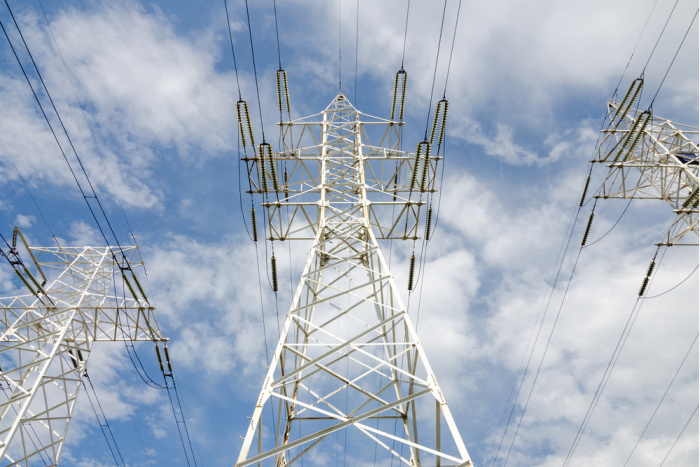

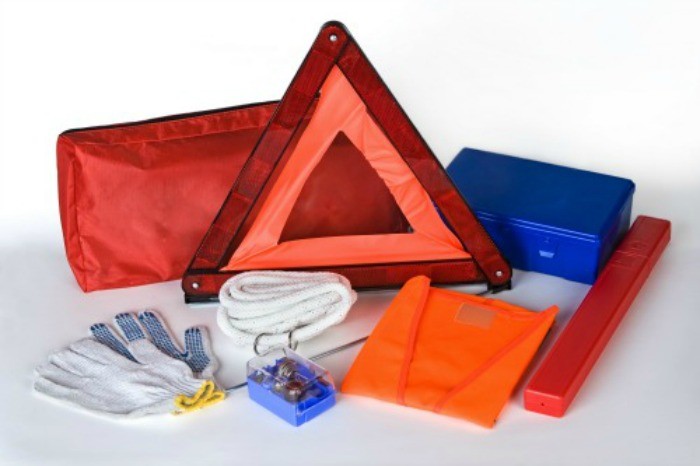
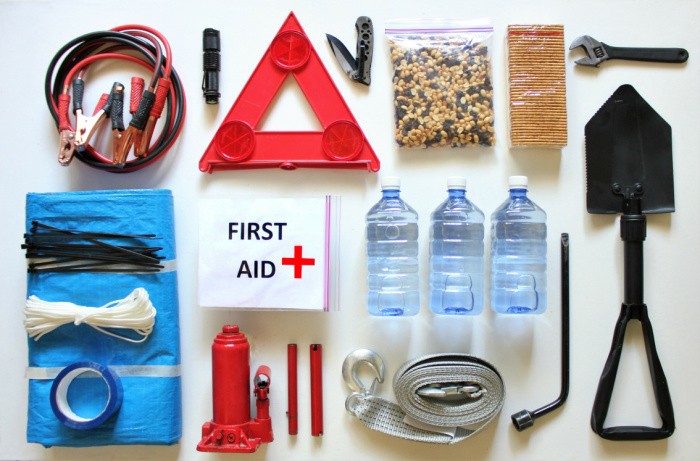

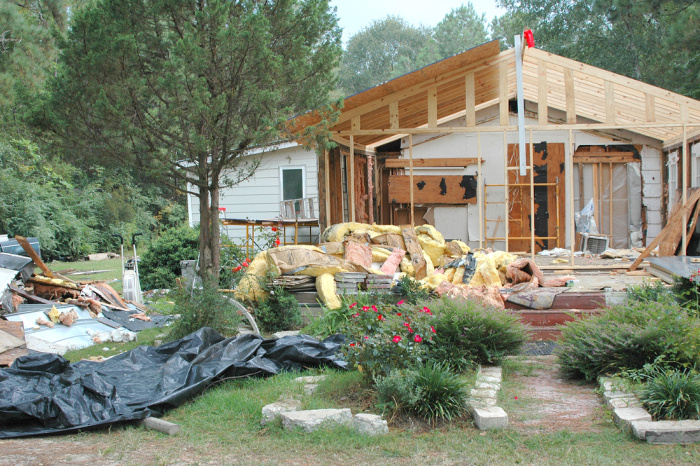
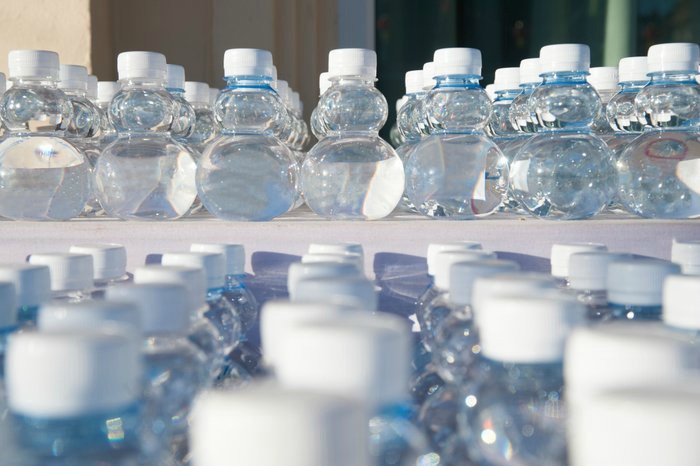
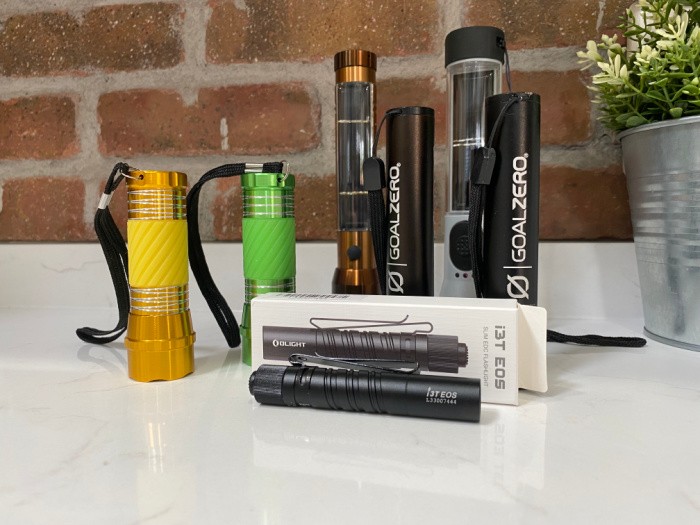








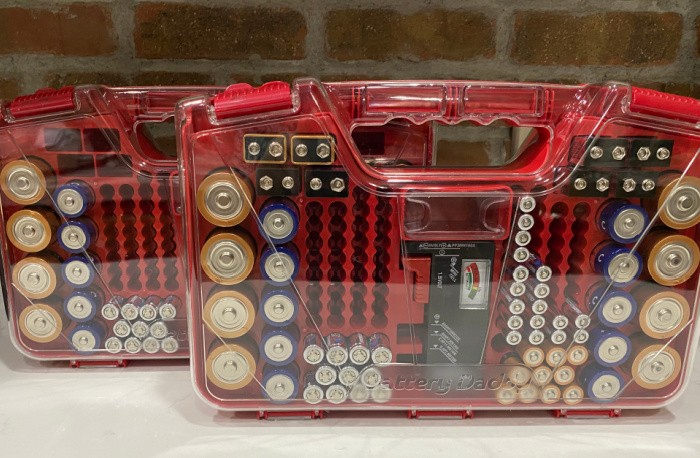




WOW! I didnt realize just now prepared I was. I have most of these already.
Hi Deborah, good job! Linda
This is something everyone should be prepared for. If the power grid goes down, it will be very uncomfortable for most people for quite a while. I read “Lights Out” and I have to say it scared me half to death. We are some of the most fortunate ones, we have a well with a hand pump, a wood stove and alternate ways to cook. Imagine living in an apartment.
Generators eventually will run out of fuel, but if you can spend time dehydrating and canning most of your food, they will be worth their weight in gold.
Hi Janet, you really are blessed to have a hand pump, a wood stove, and many ways to cook food. I only have a solar generator that is only enough to make it easy for me to use my wheat grinder and Bosch bread maker. It only has 1250 watts so it will not cover my frig or freezer. I know it would be smart to get a propane or gas generator. But I’m smart enough to know that fuel will not last for years. So for my budget, it does not make sense. I can have a huge barbecue and eat what’s in my freezer with the neighbors if we have a totally grid down. Heaven help us, we will need it. I wish everyone would read that book. So many love the book “One Second After”. I can tell you in one paragraph what that book drags out. Stay safe, Linda
Very intense post, but really got me to thinking about gasoline. Even that has an expiration date. Gasoline without all the fancy additives will stay fresh longer, but it can be difficult to find. One would need to stock up on gas-prolonging products like Sea Foam as well. At some point, even the best-maintained supplies of petrol, propane, charcoal and wood, not to mention stashes of batteries, could be depleted, so we all need to come up with reasonable, reliable, sustainable energy sources for Plan C.
Hi Terry, you nailed it. Our country is so unprepared, we should have had lower salaries for the leaders of our government to prepare our country for solar. If you have read “Lights Out” by Ted Koppel, you totally understand. Our three power grids are pathetic and will never be repaired or replaced in time to save our country. People think COVID is bad, and it is, but we will have a total economic collapse when we have a cyberattack on our antiquated power grids. An EMP is the least of our worries, in my opinion. God bless our world, Linda
Does anyone know how natural gas would be effected by extended loss of electricity? We have a whole house generator, that we have serviced every year, and self-tests every month. Even our sump pump has a second back up water generated pump. Our furnace is mounted at the basement ceiling to prevent water damage.
Thanks to Linda and all of you, I feel we are getting better prepared every day.
Hi Chris, this is a very good question. I’m thinking we will need electricity to pump gas (not talking about car gas stations right now) into the gas lines. BUT, I do not work for the gas company. Let’s see if someone has the answer to this. We depend on electricity, this is my biggest fear, our vulnerable 3 power grids. Linda
Found an article on Forbes.com from 2012:
https://www.forbes.com/sites/peterdetwiler/2012/11/06/weve-seen-the-electric-grid-at-its-worst-how-about-the-gas-network/#1d97806f3cef
So rural areas might keep pressure longer since there are gas powered compressors in non-residential areas, but as you get closer to the cities those stations tend to be electric powered due to noise considerations. Sure, compressor stations will probably have backup generators, those won’t last forever either….
And a report from the US DoE from 2013:
https://www.energy.gov/sites/prod/files/2013/04/f0/Northeast%20Storm%20Comparison_FINAL_041513b.pdf
page 25:
Transmission Pipelines
Following Hurricane Irene, three interstate natural gas transmission pipelines—Transcontinental Gas Pipeline, Tennessee Gas Pipeline, and Iroquois Gas Transmission—reported that they continued to operate during the storm but monitored low-lying areas of their systems for flooding. Transcontinental reported that some of its pumping stations lost power and/or had minor flooding. Iroquois reported that it used backup generators at some of its facilities.
Following Hurricane Sandy, Spectra Energy reported that power and communications were out at the majority of its facilities in New Jersey. The company also reported that two compressor stations on its Texas Eastern Transmission pipeline in northern New Jersey went down due to the loss of commercial power and the failure of backup generation to operate as intended. Tennessee Gas Pipeline, Columbia Gas Transmission, and the Interstate Natural Gas Association of America reported no impact to operations.
Unfortunately I haven’t found any current info on this topic. So I’d assume that nothing has improved and that during a long term grid down event that natural gas wouldn’t be available for long. But while it lasts you can definitely use the time to pressure can any meats you had in the freezer, and cook your meals with gas until it finally stops and then you have to rely on your limited fuel stores.
As an aside, I have enough filters and oil to keep my standby generator running for 6 weeks during an event since I’m not really expecting gas working for more than a week or two if there is a widespread grid down event. Of course if we get hit with an EMP that fries electronics then we might be able to cook for a day or two with what pressure remains in the pipes, but I doubt civilian generators would work post EMP. Worst case means I fall back to propane grill, propane smoker and SunOven faster than I was expecting….
Hopefully this was more helpful than not.
Hi DmWalsh, this helps a lot! This tells me gas lines will eventually not work without electricity. Thank you so much!!!! Linda
Hi Linda,
1) The Goal Zero Lantern Lighthouse is not a solar charger (it cranks).
2) The grid could fail on a large scale for a long time if there is an EMP attack or solar flare. Cars, everything electronic, batteries, chargers, etc. would be fried.
3) We live at the bottom of the hill (bottom of the sewer line) and before we bought this house, it and the one next door flooded with sewage. A back-flow valve has been put in the sewer line leaving our house, so sewage can’t back up into the house from the main sewer line. We have barrels of non-potable water to put in buckets to flush the toilets in case of water supply disruption, but in case the sewer lifting station pumps don’t work, we won’t be able to flush and pray the back-flow valve doesn’t fail.
Hi Kathleen, thank you for the correction on the Goal Zero, I have all the solar panels that go with it. I changed the sentence to this: Make sure you have some sort of solar unit that can charge your phone, just get one. Here is one that I highly recommend: Goal Zero Lantern Litehouse. I would be nervous living at the bottom of the hill, but it sounds like you have a good plan with a back-flow valve. I have just about every piece Goal Zero sells. They have been good to me over the years to write about their great products. Thanks again, Linda
Hi Linda, Thank you for your reply. Yes, I am nervous about living at the bottom of the hill next to the sewer lifting station. My husband says we are not moving and the only way he is leaving here is feet first. I hope we don’t have to float out on our mattress on top of a lake of sewage!
I do have a question, though – Almost all of my recipes for soups and stews are tomato based. My husband and I can no longer eat tomatoes, potatoes…nightshades due to my arthritis and his calcium oxalate kidney stones. He can’t have green vegetables, beans, nuts, corn, beets, okra, spinach, sweet potatoes, chocolate, black pepper, soy products, whole grains…and we thought we were eating healthy – so no more taco soup, tabbouleh, whole wheat bread, German fried potatoes, German tomato salad, Indonesian stir fry, scrambled eggs with salsa, Mexican food, and almost everything I used to cook. I was in tomato heaven – 3 or 4 times a day – but I got to where I couldn’t walk and he got kidney stones. I have tried substituting chicken and beef broth for pureed stewed tomatoes, but it just isn’t the same. Old age is rough! Do you have any info on other substitutions? I have a lot from the internet, but most have something one or both of us can’t have. Thanks, Kathleen
Hi Kathleen, oh my gosh, I kept reading and thought, what’s left to eat???!!! Wow, I have arthritis really bad, maybe I better quit eating tomatoes. My daughter was telling me they cause a lot of inflammation in the body. Dang!! I just turned 70 in January, wow, no one told us what to expect!! LOL! Now we know!! Mark and I eat a lot of burritos, I guess you could say. I buy frozen onions (then I don’t have to chop them and they are cheap) with chopped red and yellow bell peppers in tortillas with or without meat. Mark likes to eat meat. I love salsa, which has tomatoes. Hmmm, I bought a bunch of lentils and a reader, Janet gave me a bunch of recipes, I will start working on this. Great comment, Linda
If you have a gas stove, you’ll still need matches or lighters. If it’s an old stove (like the one in my childhood) then you need a light anyway–and if it’s more modern, with an electric “lighter,” then you’ll need a “manual” lighter if the power is off.
Have a kerosene lantern or two, and kerosene to fuel it. Learn how to service the wicks (daily) or you’ll have smoky lantern chimneys. If you’re OK with candles, get some proper holders (some even have chimneys like a lamp). You can increase light by putting up some aluminum foil or a mirror behind a candle, on a mantelpiece, for example. And don’t forget that candles burn better if the wicks are kept trimmed properly, too.
If you live where it gets cold, try to locate some flannel sheets, and lay in whatever you can for blankets, quilts, comforters–and sleeping bags! Sleeping bags not only work as intended, they make super comforters (even if the zippers don’t work).
Get some basic hand tools for the kitchen and elsewhere–think of the blenders, beaters, coffee grinders (and brewers!), knife sharpeners, etc., that work by electricity–then find the old-fashioned hand version. Same for some basic shop and/or farm tools.
Hi Rhonda, great comment, I LOVE LOVE LOVE it! Awesome tips! Linda
I have a large propane tank,several smaller ones and a generator that runs on propane. I also have several ways to cook. I can most of my meat,having lost a freezer full of food at least 2 times over the past 15 years. We are restocking our long term storage and water storage. I have non GMO seeds. I have about 6 months of crucial medications. I am stocking up on rechargeable batteries. Need to replace my solar lanterns,they will not hold a charge any more. (Not sure why).I have candles of every size. I plan to pick up a couple more fire extinguishers. I have manual can openers, manual wheat grinders and manual mixers. (one is none and 2 is one). My son bought oil lamps and oil several years ago, so we have several sizes large for kitchen and living rooms and smaller one for bathrooms. We have little flip type lights for the bedrooms. I have battery operated fans for each person. (we’ve had to use them a few times already this year due to power going out. We have a wood stove and buy wood as there isn’t any good firewood near here anymore. Seems like there is always something more to stock up on be prepared. I don’t want to live in fear, I want to live prepared. God bless you and yours.
Hi Judy, you are so prepared in so many ways, you know I LOVE hearing from you! We won’t live in fear because we are prepared. Life is good, stay safe, Linda
Great information. I think we need to add communication to the list. We need a network of ham radio operators that can spread the word as to what’s going on in the country.
I wanted to tell you all about a new nationwide net whose intent is to run when communications go down in more than 1/3 of the country. Their information will be based on what people are actually seeing on the ground, not what the government or media is telling us. If you are interested, you can join their bi-weekly webinar for more details. It lasts about 15-20 minutes, depending on questions. The next webinar will be Friday, August 28th at 6 pm Pacific time and run every other Friday thereafter.
Here’s the link:
https://us02web.zoom.us/j/89669129192?pwd=Um9jcnVSWEdtZllGZ3luRGE3THZXdz09
Hi Lineman, thank you for the link! We all need a way to communicate! Great comment! Linda
If you get candles make sure they are made from pure bees wax. They smell wonderful, last a long time and get allergens out of your house. You have to get them on line unless you buy from a beekeeper. They aren’t fancy,but work great!
Hi Cheryl, they get allergens out of your house???? Oh my gosh, I would love this! There is a place in Hurricane Utah that sells everything “Bee”. I’m going to go check them out. Thank you, Linda
Just subscribed! My pastor talks about this constantly and how we all need to prepare for the times that’s coming!
Hi Mesia, I’m glad your pastor is addressing his congregation about being prepared! I love hearing this! Linda
Linda,
I think we are covered in all of these items. Our generators are in a fully grounded all-steel building. We also have invertors set up on two of our vehicles that will supply A/C power if needed. We further have EMP shields on each of our five vehicles. https://www.empshield.com/ If that is not enough, we will make do via methods used in covered wagon days. HEH!
Hi Harry, thanks for the link on the EMP shields! Oh man, I hope we don’t need a covered wagon, LOL! Yes, I bet we might be living like pioneers sooner than later. At least we are prepared. Life is good! Linda
Everyday I try to learn something new and you never let me down. I feel like I am always holding my breath, wondering when and if something is going to happen. We are close to the Niagara Power Vista and Niagara Falls. I see that as a very attractive target. God keep us all safe.
Hi Chris, I worry about our military bases as well. My grandson builds something for Hill Air Force Base, and they have some kind of plane that is a threat to our enemies. I’m too old to know the name of it, I should have written it down! LOL! The power grids are my biggest fear even over an EMP, that’s my personal opinion. It would takes years to fix them. Hopefully, all three grids are not hit the same day. I agree God, please keep us safe. Linda
Love this! Really like Rhonda’s comment. I have acquired a lot of “old-fashioned” kitchen tools that I use a lot. One thing I got from an old coworker is an old 1940s manual meat slicer,like the electric ones deli’s use, mine is hand cranked. She found it in her basement cupboard after she bought an older home. It seems the older lady had a canning kitchen in the basement and the kids didn’t or forgot to look in the cabinets down there when they sold the house. I scored!! I had it checked out and it is still in perfect working order. Really makes slicing those ham chubs, turkey chubs, etc easier when you want to do sandwiches, etc.
Hi Kathy, oh my gosh, you scored a great meat slicer, wow!! You know I love hearing about stuff like this! I wish I had taken more of my mom’s kitchen tools because I would use them for sure! She had a pink (and silver) egg and batter mixer, it is so cute! My sister got that one. I got my mom’s recipe card box but very few recipes were in it. But even so, I have and I’m thrilled! Now I want to look for a 1940 hand cranked meat slicer, that is so awesome! Love this! Linda
Yes, I couldn’t believe what she let me have.She was just going to toss it all out. A hand wheat grinder, hand egg beater, an old coffee grinder to name a few things. A couple of the tools weren’t in the best of shape so I had to let them go. They weren’t salvageable but I did get replacements when I went to a few estate sales.
Hi Kathy, I call that a great Estate Sale!! I think the relatives take what they want but then they get tired of cleaning out everything else. You were there at the right time, you found some awesome stuff! Linda
It was great,I had given her a couple of area rugs that were in great shape we were going to donate, a 5×8 and 10×12 area rugs after redecorating.She was thrilled to get the rugs to use in her basement for her kids.She couldn’t see spending the money on area rugs for the basement so soon after buying her first house. Although she thought I was a bit goofy for wanting the “old fashioned” kitchen stuff, LOL.I think I got the better part of the deal though 😉
Hi Kathy, it sounds like a win-win for both of you! But I think you got the better part of the deal as well! I love it! Linda
I asked a friend who works for Utah’s water department and got this info:
“Yes a water treatment plant needs power. Many have very large generators to keep them going when power goes out. But generators are not meant to be long term.
If the grid goes out completely for months and years….. that would be very chaotic.
All treatment plants have reservoirs of clean fresh water that is millions of gallons. These reservoirs are usually high in elevation and gravity feed the public. There is some water available after an electrical grid outage from these reservoirs and from onsite generators but I don’t see long term needs met from these solutions.”
So we’re good for a short-term power outage but not a EMP or long-term grid down. He also agreed with Linda’s comment about the sewer lines.
Hi Kay, I was told the same thing about the water treatments in Southern Utah. There is only so much water to give to your city from the reservoirs, millions of water will go pretty quick. We can only stock so much water, but we must do the best we can. The sewer lines will be the worst, we must have portable toilets and lot of bleach. Linda
You know, it’s great to re-read these articles that have been up before–I always see something new!
I’ll add getting or making a simple “rocket stove” for basic cooking–they work with just about any sticks or twigs fed into them. Also, locate a copy of something like Dorothy Hartley’s book “Food In England”–don’t be fooled by the name, it’s simply a history of food preparation and cooking (with some useful recipes), methods that in many cases could be put to good use in a grid-down situation.
Re. EMPs–solar flares cause them as well. First known one was in 1859, the Carrington Event (no idea why that name). There wasn’t much but telegraph that was electrical back then, but most of them were “fried” and more than a few caught fire. Supposedly we’re overdue for solar activity of that sort…
Hi Rhonda, I totally agree with you on the rocket stove, you can usually find twigs and small sticks. even pine cones. Thanks fo the tip on the book, I will look for one, I love stuff like that! Life is good! Linda